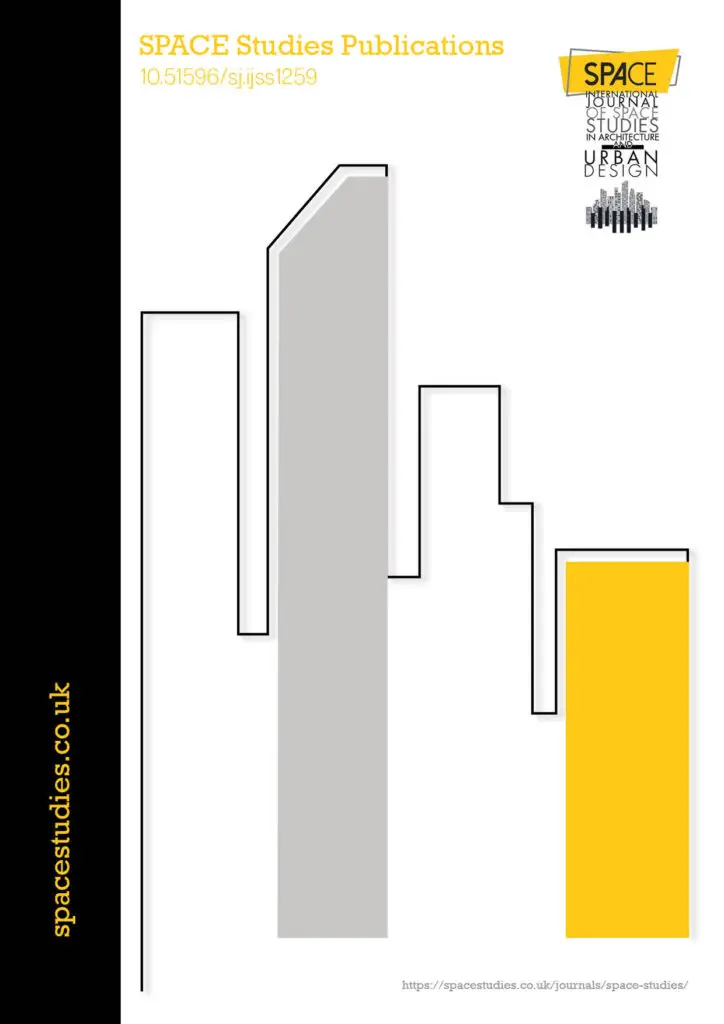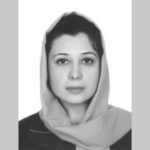
Maria Roy
Khulna University, Research Assistant of SustainableRapid and uncontrolled urbanisation is posing severe environmental issues to cities in the developing countries. Biophilic urbanism, an emerging concept of urban planning that aspires for regenerative sustainability. Urban agriculture, among the several features of biophilic cities, can generate direct short-term economic gains. This study on a city of a developing economy aims to inquire about the scope of urban agriculture at the neighbourhood level. The research applied semi-structured interviews of the residents, visual observation, mapping, review of relevant policy documents and key informant interviews. The results indicate that existing community-led practices are offering vegetables and shades. There are spaces to incorporate urban agriculture as well. Given that the government and non-governmental organizations support this concept, it is remarkable that residents are willing to embrace urban agriculture in a more organized manner. Supportive regulatory frameworks reflect political will toward biophilic urbanism, but institutional support is still required for effective implementation. The findings of this study suggest that biophilic urbanism could be implemented in the urban areas of developing economies.
£35.00 per Month.
Student priced discounts on conference registrations, SPACE shop and e-journals. Access to members only areas on the website. Proof of student eligibility required.
Access to Journal subscription.
Acknowledgements
This study received no financing from public, private, or non-profit organizations.
Conflict of Interests
The authors disclose that they have no competing interests.
References
Anakwenze, U., & Zuberi, D. (2013). Mental health and poverty in the inner city. Health & social work, 38(3), 147-157. https://doi.org/10.1093/hsw/hlt013
Beatley, T. (2011). Biophilic cities Integrating Nature into Urban Design and Planning. https://doi.org/10.5822/978-1-59726-986-5
Beatley, T., & Newman, P. (2013). Biophilic cities are sustainable, resilient cities. Sustainability, 5(8), 3328-3345. https://doi.org/10.3390/su5083328
Byomkesh, T., Nakagoshi, N., & Dewan, A. M. (2012). Urbanization and green space dynamics in Greater Dhaka, Bangladesh. Landscape and Ecological Engineering, 8(1), 45-58. https://doi.org/10.1007/s11355-010-0147-7
Chawla, L., & Derr, V. (2012). The development of conservation behaviors in childhood and youth. https://doi.org/10.1093/oxfordhb/9780199733026.013.0028
Dickinson, E. (2013). The misdiagnosis: Rethinking “nature-deficit disorder”. Environmental Communication: A Journal of Nature and Culture, 7(3), 315-335. https://doi.org/10.1080/17524032.2013.802704
Du Plessis, C. (2012). Towards a regenerative paradigm for the built environment. Building Research & Information, 40(1), 7-22. https://doi.org/10.1080/09613218.2012.628548
el-Baghdadi, O., & Desha, C. (2017). Conceptualising a biophilic services model for urban areas. Urban Forestry & Urban Greening, 27, 399-408. https://doi.org/10.1016/j.ufug.2016.10.016
Farr-Wharton, G. (2019, December). Seed to Feed: Leveraging HCl and Capitalising on Office Environments to Grow Food. In Proceedings of the 31st Australian Conference on Human-Computer-Interaction (pp. 53-63). https://doi.org/10.1145/3369457.3369462
Levidow, L. (2018). London’s urban agriculture: Building community through social innovation. The International Journal of Sociology of Agriculture and Food, 24(3). https://doi.org/10.48416/ijsaf.v24i3.10
Levy, S. S. (2003). The biophilia hypothesis and anthropocentric environmentalism. Environmental Ethics, 25(3), 227-246. https://doi.org/10.5840/enviroethics200325316
Littke, H. (2016). Becoming biophilic: challenges and opportunities for biophilic urbanism in urban planning policy. Smart and Sustainable Built Environment. https://doi.org/10.1108/SASBE-10-2015-0036
Lwasa, S., Mugagga, F., Wahab, B., Simon, D., Connors, J., & Griffith, C. (2014). Urban and peri-urban agriculture and forestry: Transcending poverty alleviation to climate change mitigation and adaptation. Urban Climate, 7, 92-106. https://doi.org/10.1016/j.uclim.2013.10.007
Mabon, L., & Shih, W. Y. (2021). Urban greenspace as a climate change adaptation strategy for subtropical Asian cities: A comparative study across cities in three countries. Global Environmental Change, 68, 102248. https://doi.org/10.1016/j.gloenvcha.2021.102248
Miedema, K. (2019). Grow small, think big: designing a local food system for London, Ontario. URBAN DESIGN International, 24(2), 142-155. https://doi.org/10.1057/s41289-019-00095-5
Mustafa, F. A., & Yaseen, F. R. (2019). Towards the Application of Biophilic Parameters in Local Buildings: a Case Study of Bilkent School, Erbil City-Iraq. Architecture, 10(2). https://doi.org/10.14716/ijtech.v10i2.2416
Newman, P., Beatley, T., & Boyer, H. (2017). Resilient cities: Overcoming fossil fuel dependence. Island Press. https://doi.org/10.5822/978-1-61091-686-8
Reeve, A. C., Desha, C., Hargreaves, D., & Hargroves, K. (2015). Biophilic urbanism: contributions to holistic urban greening for urban renewal. Smart and sustainable built environment. https://doi.org/10.1108/SASBE-11-2014-0057
Reeve, A., Desha, C., Hargroves, C., Newman, P., & Hargreaves, D. (2013). A basis for inquiry into policy considerations for increasing the application of biophilic urbanism. In Urban Environment (pp. 143-151). Springer, Dordrecht. https://doi.org/10.1007/978-94-007-7756-9_12
Ridgers, N. D., Stratton, G., & Fairclough, S. J. (2006). Physical activity levels of children during school playtime. Sports medicine, 36(4), 359-371. https://doi.org/10.2165/00007256-200636040-00005
Ridgers, N. D., Stratton, G., & Fairclough, S. J. (2006). Physical activity levels of children during school playtime. Sports medicine, 36(4), 359-371. https://doi.org/10.2165/00007256-200636040-00005
Roy, S., Sowgat, T., & Mondal, J. (2019). City profile: Dhaka, Bangladesh. Environment and Urbanization ASIA, 10(2), 216-232. https://doi.org/10.1177/0975425319859126
Roy, S., Sowgat, T., Islam, S. T., & Anjum, N. (2021). Sustainability Challenges for Sprawling Dhaka. Environment and Urbanization ASIA, 0975425321997995. https://doi.org/10.1177/0975425321997995
Soderlund, J. (2017). New Opportunities for the Horticultural Industry. Ornamental Horticulture, 23(3), 221-233. https://doi.org/10.14295/oh.v23i3.1115
Srinivasan, S., O’fallon, L. R., & Dearry, A. (2003). Creating healthy communities, healthy homes, healthy people: initiating a research agenda on the built environment and public health. American journal of public health, 93(9), 1446-1450. https://doi.org/10.2105/AJPH.93.9.1446
Tibesigwa, B., Visser, M., Collinson, M., & Twine, W. (2016). Investigating the sensitivity of household food security to agriculture-related shocks and the implication of social and natural capital. Sustainability Science, 11(2), 193-214. https://doi.org/10.1007/s11625-015-0332-6
Toth, A., Rendall, S., & Reitsma, F. (2016). Resilient food systems: a qualitative tool for measuring food resilience. Urban ecosystems, 19(1), 19-43. https://doi.org/10.1007/s11252-015-0489-x
Wan, G., & Wang, C. (2014). Unprecedented urbanisation in Asia and its impacts on the environment. Australian Economic Review, 47(3), 378-385. https://doi.org/10.1111/1467-8462.12076
Wertheim-Heck, S., Raneri, J. E., & Oosterveer, P. (2019). Food safety and nutrition for low-income urbanites: exploring a social justice dilemma in consumption policy. Environment and Urbanization, 31(2), 397-420. https://doi.org/10.1177/0956247819858019
Wilson, E. O. (1984). Biophilia. Harvard university press. https://doi.org/10.4159/9780674045231
Yigitcanlar, T., & Teriman, S. (2015). Rethinking sustainable urban development: towards an integrated planning and development process. International Journal of Environmental Science and Technology, 12(1), 341-352. https://doi.org/10.1007/s13762-013-0491-x
Youzhen, C., & Longlong, D. (2012, August). From Garden City to Smart Growth: The Evolution and Management of New Urbanism. In Proceedings of the 2012 International Conference on Public Management (ICPM-2012) (pp. 266-271). Atlantis Press. https://doi.org/10.2991/icpm.2012.32
Ziari, K., Pourahmad, A., Fotouhi Mehrabani, B., & Hosseini, A. (2018). Environmental sustainability in cities by biophilic city approach: a case study of Tehran. International Journal of Urban Sciences, 22(4), 486-516. https://doi.org/10.1080/12265934.2018.1425153
Sign in to continue
Not a member yet? Sign up now

Administrative Assistant
Deniz Bol is the Administrative Assistant at SPACE Studies, where she supports the day-to-day operations and contributes to the smooth functioning of the organization. Alongside her administrative role, Deniz is an artist with a passion for creative expression. She is currently pursuing her studies at the University of the Arts London (UAL), where she continues to develop her artistic practice. Her organizational skills, paired with her artistic background, make her a valuable asset to the SPACE Studies team, helping bridge the worlds of administration and creativity.
E-mail: denizbol@spacestudies.co.uk

Digital Marketing Consultant
Murat Oktay is the Digital Marketing Consultant at SPACE Studies, where he provides strategic guidance to enhance our digital presence and community engagement. With a keen eye for digital marketing trends and best practices, Murat plays a key role in refining our content strategy, expanding our online reach, and connecting with a wider audience. His expertise in digital tools and innovative marketing techniques aligns with SPACE Studies’ mission as a social enterprise, ensuring that our campaigns are impactful and resonate with our commitment to social responsibility in architecture and design. Outside his work with SPACE Studies, Murat stays at the forefront of digital marketing advancements, continually exploring new tools and sharing his insights with peers.
E-mail: muratoktay@spacestudies.co.uk

Marketing Manager
Santa Noella Matabaro is the Marketing Manager of SPACE Studies, bringing her expertise in strategic planning, community engagement, and relationship-building to the organization’s mission as a social enterprise. With a background in Politics & Law from the University of Kent, Santa combines analytical insights with a creative approach to advancing SPACE Studies’ vision of fostering interdisciplinary dialogue in architecture, design, and urban planning. In her role, she develops targeted campaigns and strategic partnerships, building brand presence and fostering meaningful connections with the community. Santa’s collaborative and people-centered approach enhances SPACE Studies’ impact, aligning with its commitment to social responsibility and innovation in the built environment.

Academic Content Coordinator
Betul Uckan is an architect and dedicated academic with a background in both architectural practice and research. She holds a Master of Science in Architectural Design and a Bachelor’s degree in Architecture from Istanbul Technical University, where she cultivated her interests in architectural theory and design. Betul has gained experience as a research assistant in various universities, contributing to design studios and foundational courses. She has also worked in the field as an architect with projects focused on design, modeling, and construction, and has been involved in notable projects, including Maltepe Piazza and Emaar Square in Istanbul. With her expertise spanning both digital and material architecture, Betul brings a dynamic, interdisciplinary approach to her role as the Academic Programme Coordinator.
E-mail: betuluckan@spacestudies.co.uk

Senior Researcher & Managing Editor
Arghavan Pournaderi is a senior researcher in the field of architectural conservation and restoration, with an academic foundation in architecture and specialized expertise in historic sites and buildings. Completing her PhD at the Art University of Isfahan, Iran, in 2019, her research has contributed to the understanding of Iran’s architectural heritage, with a focus on Isfahan’s urban and architectural evolution during the Safavid period. In addition to her extensive research, Dr. Pournaderi has held academic positions at various institutions in Isfahan, teaching at both undergraduate and graduate levels. Her work extends beyond academia as she contributes to SPACE Studies as Senior Researcher & Managing Editor, where she oversees scholarly initiatives that foster deeper interdisciplinary dialogue in architecture and heritage conservation.

Senior Researcher & Educational Consultant
Gregory Cowan is a Senior Researcher and Educational Consultant at SPACE Studies, where he leads initiatives that bridge academic research and practical application in architecture and urban design. He contributes his extensive experience to mentoring postgraduate students, designing educational workshops, and guiding community-focused projects. Gregory is also a freelance academic at the University of Wales Trinity St David and the University of Westminster, and founder of The Architects Coach. His expertise spans architectural workspace analysis, professional development, and positive intelligence coaching.
E-mail: gregorycowan@spacestudies.co.uk

Senior Researcher
Alison Hand is a Senior Researcher at SPACE Studies. She is a painter and writer with an MA in Painting from the Royal College of Art. Alison’s work focuses on creating absurd, unstable heterotopic spaces and dialogues with painting history. She is currently the Artist in Residence for King’s College London Philosophy Department on the Dreams and Wakeful Consciousness Research Project, exploring themes of time and simultaneity in new work. Alison has received numerous awards for her painting and is currently working with Bloomsbury Publishers on a major essay on Drawing in Contemporary Art. She is also the BA Fine Art Programme Leader at Art Academy London and co-director of Cement Arts. Her role at SPACE Studies involves leading research projects, mentoring junior researchers, and contributing to our artistic and academic initiatives.
E-mail: alisonhand@spacestudies.co.uk

Senior Researcher
Julian Wild is a Senior Researcher at SPACE Studies and the Sculpture Program Leader at The Art Academy London. With over 30 years of experience in creating and exhibiting sculptures, Julian has worked with high-profile clients such as Cate Blanchett and the University of Oxford. A fellow and former vice president (2015-2019) of the Royal Society of Sculptors, his work has been featured at venues like Modern Art Oxford and Chatsworth House. At SPACE Studies, Julian leads research projects, mentors junior team members, and conducts workshops that blend art and urban studies. In his free time, he enjoys attending academic conferences and crafting new sculptures.
E-mail: julianwild@spacestudies.co.uk

Director of Publications & Senior Researcher
Elif Suyuk Makakli (Associative Professor) earned her PhD in Architecture from the Vienna University of Technology, where she studied the impact of technology on architecture under Prof. William Alsop. With extensive experience in architectural practice in Istanbul and Vienna, she is now an Associate Professor at FMV Isik University, focusing on design education and technology. At SPACE Studies, Elif serves as both the Head of Publications and Senior Researcher, guiding scholarly content and contributing to research initiatives. She is dedicated to mentoring and fostering design innovation.
E-mail: elifsmakakli@spacestudies.co.uk

Director of Research
Sanaz Shobeiri is an architect, urban designer, and landscape urbanist, currently a postdoctoral researcher in the Department of Planning at Queen’s University Belfast. Her research focuses on age-gender inclusiveness and the interplay of architectural, historical, political, and sociocultural dimensions in urban spaces, exemplified by her project on city centres in Belfast and Tehran. Sanaz holds a PhD in Urban Planning from the University of Tehran and has a robust portfolio in sustainability and urban theory. As Head of Research at SPACE Studies, she leads innovative research initiatives, fostering collaboration and academic excellence. In her free time, Sanaz enjoys exploring urban landscapes and supporting community development.
E-mail: sanazshobeiri@spacestudies.co.uk

Creative Director
Selin Gulce Sozmen is the Creative Director at SPACE Studies, where she leads the artistic vision and design strategy for the organisation. With a background in graphic design and visual arts, Selin has been instrumental in creating visually captivating books, journals, and event posters. Her role extends to developing and coordinating workshops and creative projects, ensuring that all visual materials meet the highest standards of quality and innovation. Selin’s dedication to creativity and excellence drives the visual and creative direction of SPACE Studies, making her an essential part of the team.
E-mail: selinsozmen@spacestudies.co.uk

Founder & Executive Director
Pinar Engincan is the Founder and Executive Director of SPACE Studies, an innovative social enterprise focused on fostering interdisciplinary dialogue and education in architecture and urban design. With extensive experience as a lecturer and researcher, Pınar holds a PhD in Architecture and has led numerous academic initiatives. Her career includes curriculum development, international collaborations, and research on housing and urban policies. Passionate about bridging academia and community, she champions accessible education and consultancy services, empowering individuals to shape the built environment.
E-mail: pengincan@spacestudies.co.uk